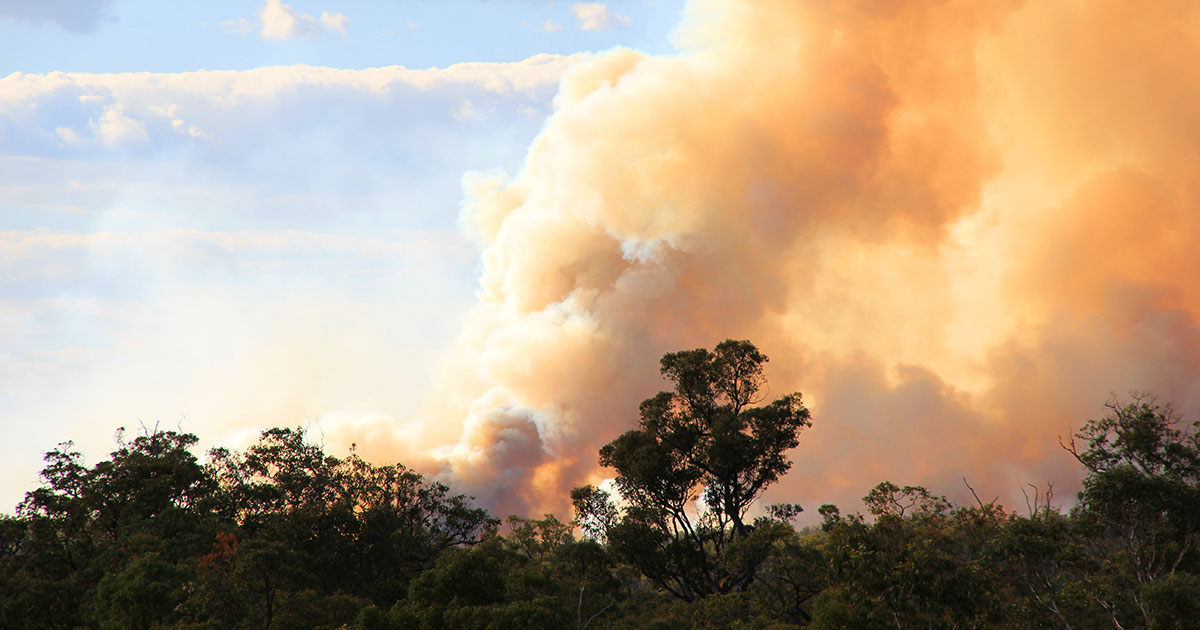The Australia Fires and Our Future

By now, you’ve seen the images. You’ve read the headlines.
More than 16 million acres burned. Hundreds of millions of animals perished or facing starvation.
Australia is on fire.
This is a catastrophe that The New York Times reports “the modern world has never seen,” and “an example of what the future holds under a warming world,” warns Babson College Assistant Professor of Earth and Environmental Science Joanna Carey.
Australia Fires and What They Signal
While higher temperatures and drier weather are common during the country’s summer months, the Australia fires are “alarmingly more severe than ‘normal,’ ” said Carey.
“Climate change alters almost every aspect of (our) interacting system, fueling more intense weather events, like the brushfires.”
Climate change, explains Carey, is a result of an increasing amount of CO2, among other greenhouse gases, in the atmosphere. Greenhouse gases that trap heat radiating off the Earth, much like a blanket.
While climate fluctuations are not out of the ordinary, “the current situation is not natural,” says Carey. “All evidence indicates that the rates of warming we’re currently observing are unprecedented on Earth’s 4.5 billion-year history … humans have never been on the planet while CO2 has been this high,” nor, more importantly, “while CO2 concentrations have risen this quickly.”
What You Can Do to Help
So, what can we do?
Carey, who teaches science in Babson’s undergraduate business program, advises that we can each make a difference if we “push for environmentally friendly practices within the workplace—limit plastic use, reduce building energy use, and support climate-friendly transportation options.”
And, the potential for the scale of these practices is incredible, offering us both hope and motivation for taking action.
“Solving the climate change crisis isn’t like efforts to cure cancer, because we already have the tools and technology in place to solve this problem,” said Carey. “Effectively tackling this issue requires a global effort by every sector of the global economy, this climate crisis presents humanity with a unique opportunity to unite around a common goal.”
Will the Facts Be the Fuel We Need?
A 2018 UN IPCC report shares that in order to keep warming to 1.5 degrees C above pre-industrial levels by 2100, we have to cut our 2010 emissions by 45% by 2030, and reach net zero C emissions by 2050.
And, in order to keep warming to 2 degrees C above pre-industrial levels (the threshold after which our climate becomes highly unstable), we have to cut our 2010 C emissions by ~20% by 2030 and reach net zero by 2070.
What does this mean? “Even warming to 2 degrees C above pre-industrial levels means 99% of all coral reefs will be gone, and there will be millions of climate refugees,” explains Carey. “We need massive, unprecedented changes in every sector in order to keep warming to levels that avoid catastrophe.”
While there is always room for improvement, “it seems that each week I hear about another business stepping up to walk-the-walk on environmental responsible behavior,” said Carey.
With our future in mind, Carey believes in continuing this momentum by equipping the business leaders of tomorrow with an entrepreneurial mindset—one that will position them to make necessary change, across sectors, in and out of large corporations.
A Fire that Crosses Party Lines
It is important to note though, advises Carey, that none of these changes will make enough of a change without government cooperation.
We “cannot solve this problem in isolation,” she said. “In order for businesses to fill their potential to help solve environmental issues, the government must step in to provide correction of market failures, specifically externalities associated with pollution.”
Being engaged in the matters of climate change, “does not need to be a partisan process,” adds Carey. “Transitions to clean energy have benefits that both sides of the aisle should support. I urge both individuals and businesses to contact their representatives in Congress and at the state and local levels to highlight their concern over climate change and urge immediate climate action.”
Posted in Insights





